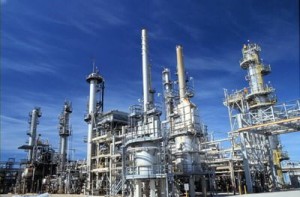As the world population is expected to reach nine billion by 2043, according to the United Nations, the basic premise of more-people-equals-more-fuel consumption is quite straight-forward. The International Energy Agency’s (IEA) recent edition of its World Energy Outlook puts this basic premise into real terms.
According to the report’s “New Policies Scenario,” where governments introduce new but cautious energy policies, primary energy demand is forecast to increase 1.2% every year to 2035. Non-Organisation for Economic Co-operation and Development (NOECD) countries are estimated to account for 93% of this growth, with the largest non-OECD country, China, using about 70% more energy than the U.S. by 2035. In fact, China is already the world’s largest total energy consumer, even though the U.S. uses more energy per capita.
One thing that isn’t expected to change dramatically, according to the IEA, is the use of fossil fuels. Oil is forecast to continue as the dominant fuel in the world’s energy mix, though hydrocarbons are expected to fall to 75% by 2035 from about 81% today. Renewables, meanwhile, are slated to increase their share of the mix to 18% in 2035 from 15% today.
Theoretically, the global population is increasing faster than the energy industry and government’s ability to find alternatives to fossil fuels. Change will come, but for the next 25 years, if the IEA view holds true, we’re going to be using the same sources we’ve come to rely on for the past several decades, including energy from Canada’s oil sands and shale based resources.
The regulatory and litigious hurdles facing refiners in daily operations is resonating to other areas of the energy industry value chain as well. For example, the Obama Administration’s decision to cancel construction of the Keystone Pipeline compels Canadians to instead opt to focus their energy resources toward Asia.
The only sure bet is that the population will continue to explode with or without alternatives to fossil fuels. Optimistically, fossil fuels, whether from tar sands in Canada or shale oil in Argentina will continue to provide secure energy alternatives for many producing-consuming countries.








Leave a Reply
You must be logged in to post a comment.